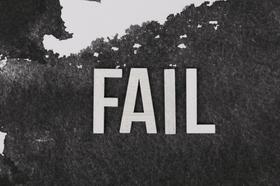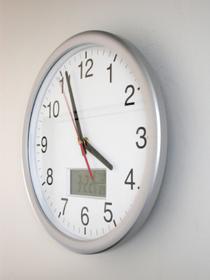Most educators would agree that the proper amount of discipline is essential to a healthy learning environment. However, the means of achieving that discipline has been a debate that has raged for decades. The latest system implemented in Chicago charter schools is no exception. Students in these schools pay a hefty price – quite literally – for even the smallest infractions. And while charter school staff members believe that price has resulted in more orderly classrooms and higher student achievement, some parents and students think it borders on harassment.
The Charge for Rule-Breaking
The Noble Network of Charter Schools in Chicago has implemented a new discipline program that involves fining students for infractions of all kinds. Last year, when the system was first introduced, the Noble school system collected nearly $190,000 for rule-breaking that ranged from chewing gum to bringing a cell phone into class. The money raised went to pay for the after-school detention program and the dean of discipline position that oversees the program at all the Noble schools.
Students caught with shoes untied or shirts un-tucked, chewing gum, or using cell phones are given demerits for breaking the rules. For example, an untied shoelace is worth one demerit, while cell phone use costs four demerits. Students who receive four demerits in a two-week period are fined $5 and receive after-school detention. If a student gets a total of 12 demerits in a single school year, he must attend a behavior class over the summer to the tune of $140. Students who don’t like – or can’t afford – the system are told to find another school.
Noble Network an Example for Chicago
The Noble Network of Charter Schools has been hailed by Chicago Mayor Rahm Emanuel as a model for the rest of the city’s education system. Those involved in the network assert that their system of focusing on smaller infractions tends to keep larger problems at bay.
“By sweating the small stuff, we don’t have problems with the big stuff,” Noble Superintendent Michael Milkie told Boston.com. Milkie added that while some Chicago schools in similar neighborhoods deal with fights on school campuses almost daily, Noble schools may see one fight each year. The schools credit the strict discipline policy with their lack of bigger problems.
Noble schools also boast higher than average performance ratings in Chicago. According to The Week, Noble’s average ACT scores, at 20.3, are higher than the city average and as many as 90 percent of Noble graduates go on to enroll in college. Milkie credits higher achievement to the fact that students are learning in a much more structured environment. Milkie told the Huffington Post that the students in Noble schools, many of whom are striving to be first-generation college attendees in their low-income families, are learning the importance of following rules.
This video offers an overview of teaching at Ruuner College Prep School.
The Problem with the Rules
While many believe the strict disciplinary structure of the Noble Network contributes to the high performance of the schools, others think the fines merely serve to force out students who can’t afford to pay up. Naysayers of the fine system complain that the schools are simply trying to boost their scores by focusing on low-income, low-achieving students who are unable to make the grade. Some reports suggest that a number of Noble students are forced to leave the network before they finish high school because they have to choose between paying bus fare and paying disciplinary fines.
Donna Moore, the parent of a Noble student, told the Huffington Post that the district is “manufacturing problems” that lead to the “unproductive badgering of students.” Moore’s son, who has an attention disorder, had to repeat the ninth grade at one of the Noble schools after accumulating 33 detentions and three suspensions.
“It was nothing egregious, but just that the little things added up,” Moore said to the Huffington Post. “A shirt unbuttoned, shoes not tied, not tracking the teacher with his eyes. It’s not normal to treat a young adult as a two-year-old…kids internalize that.”
This video offers a look at the Noble Network approach to education.
Discipline or Harassment
Some parents believe fines for infractions as small as untied shoes are harassment, rather than constructive discipline.
“We think this just goes over the line,” Julie Woestehoff, executive director of the advocacy group Parents United for Responsible Education, told Boston.com. Woestehoff’s group recently staged protests over the discipline system, after a parent alerted the organization to the situation. “Fining someone for having their shoelaces untied or a button unbuttoned goes to harassment, not discipline,” Woestehoff added.
Matthew Mayer, a professor in the graduate school of education at Rutgers University, told the Huffington Post that fining students for infractions was “highly inappropriate,” since it didn’t focus on academic performance and it put undue strain on low-income families.
“It’s almost medieval in nature,” Mayer said. “It’s a form of financial torture, for lack of a better term.”
One parent stated in the Chicago Tribune that the consequences of the system go far beyond the financial. She told the publication that her son began to see himself as a “bad kid,” after getting called out for failing to keep his eyes on the teacher and slouching in his chair. The parent added that her son fell asleep during a three-hour silent detention.
The Tribune also reports that academic research has confirmed that extreme discipline measures like this typically result in low academic achievement, high dropout rates, and alienation between students and teachers.
For now, the disciplinary system at Noble Network stands, and many educators believe it is at least one of the answers to a struggling school district. Others worry that the punitive measures used by Noble will end up doing students more harm than good. Only time will tell which side is right.
Questions? Contact us on Facebook. @publicschoolreview















